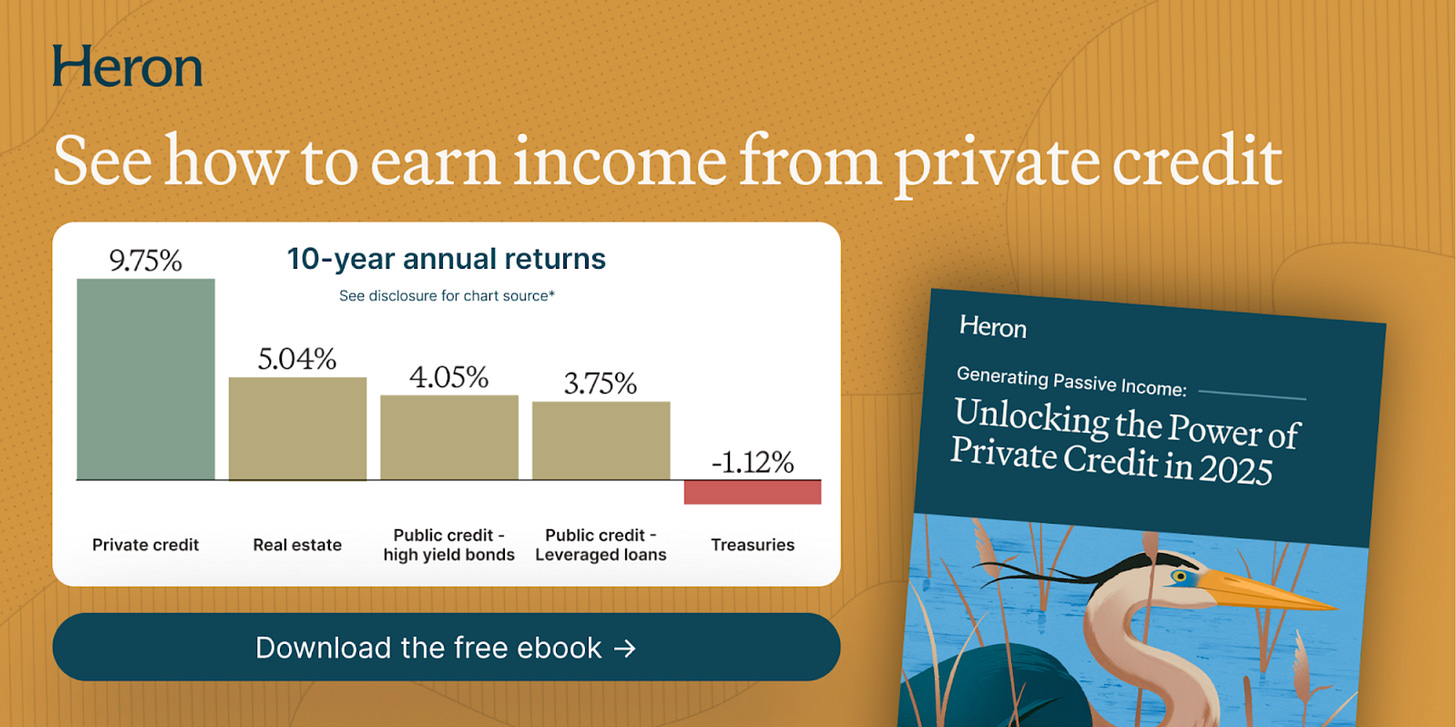NY Times brings AI into newsroom, South Korea Restricts DeepSeek
+ AI Models Show Age-Related 'Cognitive Decline'
Today’s Briefing:
Top stories:
New York Times Embraces AI Tools with Clear Guidelines
South Korea Restricts DeepSeek App Over Privacy Concerns
AI Models Show Age-Related 'Cognitive Decline' in Medical Tests
OpenAI Shifts Policy to Embrace Broader Speech in AI Models
Sponsored by*
Private credit has quietly become one of the fastest-growing asset classes according to McKinsey & Co. And it’s not stopping, with the largest pension funds increasing allocations by over 50%. Why? Higher yields (often 10%+) and lower volatility than traditional income-generating assets.*
Heron Finance’s free ebook breaks down:
Private Credit Strategies: The pros and cons of different approaches.
Finding the Right Fit: Which private credit assets align with your investing style?
Portfolio Allocation: How much should you invest in private credit?
No email required—just click for insights on how private credit can diversify your portfolio and generate passive income.
Would you like to sponsor this newsletter? View our sponsorship options
New York Times Embraces AI Tools with Clear Guidelines
The New York Times is implementing AI tools in its newsroom, including a proprietary summarization tool called Echo, while establishing strict guidelines for their use. The publication will allow AI assistance for tasks like editing, summarization, and social media content creation, but maintains that core journalism will remain human-driven, prohibiting AI from drafting articles or circumventing paywalls.
Potential Impact
The Times' careful integration of AI tools while maintaining strict journalistic standards could set a precedent for how traditional media organizations balance AI adoption with editorial integrity, particularly as the industry grapples with AI copyright issues.
First-mover Opportunities
Media technology companies can develop AI tools specifically designed for newsroom workflows that respect editorial guidelines, while training providers can create specialized programs for teaching journalists how to effectively use AI while maintaining journalistic standards.
Source ~ The Verge
South Korea Restricts DeepSeek App Over Privacy Concerns
South Korean privacy regulators have temporarily blocked new downloads of DeepSeek's app after discovering the Chinese AI company transferred user data to ByteDance. While existing users can continue using the service, the Personal Information Protection Commission (PIPC) advises against sharing personal information until DeepSeek complies with local privacy laws, joining other countries like Australia, Italy, and Taiwan in restricting the Chinese AI company's services.
Potential Impact
The growing international scrutiny of Chinese AI companies' data practices could create new barriers for their global expansion while accelerating the development of region-specific AI governance frameworks and data protection standards.
First-mover Opportunities
Companies can develop privacy-compliant AI solutions specifically designed for different regional markets, while compliance firms can create specialized services for helping AI companies navigate varying international data protection requirements.
Source ~ TechCrunch
AI Models Show Age-Related 'Cognitive Decline' in Medical Tests
A new BMJ study reveals that AI language models demonstrate deteriorating cognitive abilities with age, similar to human cognitive decline. Using the Montreal Cognitive Assessment (MoCA) test, researchers found that while newer models like ChatGPT-4 scored well (26/30), older models like Gemini 1.0 scored significantly lower (16/30), particularly struggling with visual/spatial skills and executive tasks.
Potential Impact
These findings could significantly slow AI adoption in clinical medicine, particularly for tasks requiring visual abstraction and executive function, while challenging the narrative that AI will soon replace human medical professionals.
First-mover Opportunities
Healthcare technology companies can develop specialized AI solutions that focus on areas where models maintain consistent performance, while medical software providers can create hybrid systems that combine AI strengths with human oversight in areas where AI shows cognitive limitations.
Source ~ Live Science
OpenAI Shifts Policy to Embrace Broader Speech in AI Models
OpenAI has announced significant changes to its Model Spec, emphasizing "intellectual freedom" and neutrality on controversial topics. The update includes a new principle requiring ChatGPT to provide multiple perspectives on contentious issues rather than taking editorial stances, while maintaining restrictions on objectionable content. The shift comes amid broader changes in Silicon Valley's approach to content moderation and coincides with increased scrutiny of AI companies' political leanings.
Potential Impact
This policy shift could fundamentally change how AI models handle controversial topics and shape public discourse, while potentially setting new standards for AI content moderation that prioritize neutrality over active content filtering.
First-mover Opportunities
Companies can develop AI content moderation tools that balance multiple viewpoints while maintaining safety guardrails, and consultancies can create frameworks for implementing politically neutral AI policies that satisfy diverse stakeholder requirements.
Source ~ TechCrunch
Get Involved
Submit news or Share insights: hello@futureweb.vc
Sponsor
Would you like to sponsor this newsletter? View our sponsorship options
*Disclosure: This is a paid advertisement. The opinions expressed in this advertisement are strictly those of Heron Finance. The information in this advertisement does not constitute an offer to sell securities or a solicitation of an offer to buy securities. Further, none of the information contained in this advertisement is a recommendation to invest in any securities. Please note there are no material conflicts of interest related to this advertisement. Returns are not a guarantee of future results. Please consider all risk factors before investing. Information sourced from McKinsey & Company (September 24, 2024) and Pensions&Investments (February 4, 2025). Chart Disclosure: Based on last 10-year annualized total returns as of December 31, 2024. Funds used to represent asset classes include: VanEck BDC Income ETF (BIZD), Vanguard Real Estate Index Fund ETF (VNQ), iShares iBoxx $ High Yield Corporate Bond ETF (HYG), Invesco Senior Loan ETF (BKLN), and iShares 20+ Year Treasury Bond ETF (TLT). Past performance does not guarantee future results.




